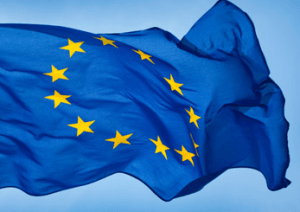European Union launches climate diplomacy week 2018
 The European Union delegation in Ghana has launched the European Union (EU) climate change week with the aim of supporting environmental education and waste segregation in schools across the Greater Accra Region.
The European Union delegation in Ghana has launched the European Union (EU) climate change week with the aim of supporting environmental education and waste segregation in schools across the Greater Accra Region.
The celebration, which is in partnership with Environment360 and the Ga East Municipal Assembly, is on the theme “Talanoa dialogue: inclusive, participatory and transparent.”
Mr Paolo Salvia, Acting Head of the EU Delegation, said environmental and climate action was one of the most important pillars of EU policy.
He said climate change was happening and its adverse impacts were being felt all over the world, saying climate adaptation was a global challenge for everyone, including Europe.
“This year, governments and stakeholders from around the world are coming together under the ’Talanoa Dialogue’.
This facilitation process inspired by the Pacific tradition of ’talanoa’, an open and inclusive dialogue -is the first opportunity since the Paris Conference to take stock of our collective efforts so far, and to find solutions and opportunities to increase our global efforts.”
Mr Salvia noted that, the EU sees the dialogue as an opportunity to focus on the solutions and potentials associated with low-carbon transformation, while also enhancing cooperation and trust.
“We are expecting to see positive evidence of the implementation of Nationally Determined Contributions. A meaningful political outcome of the Talanoa discussions would be a commitment by all governments with reference to the 1.5 degrees limit for rising of temperature and to accelerate the pace of collective action. “
He said the Dialogue also sets the tone for the EU’s annual EU Climate Diplomacy Week, and in Ghana, the focus was on recycling, re-using and reducing the use of plastics, by engaging with a broad range of stakeholders, among them several schools, sharing experiences, and exploring avenues for further collective action.
He said the EU chose to support environmental education and waste segregation in schools, because, children would have the opportunity to learn how to incorporate the 3R’s, recycle, re-use and reduce into their life through interactive plays and they would have an opportunity to express their views creatively through a recycled art competition.
“The EU is committed to climate and energy, and climate action has been integrated into many EU funding instruments. For instance, the EU launched the Covenant of Mayors in 2008 where thousands of cities in Europe have committed to increasing energy efficiency and the use of renewable energy sources on their territories. This is part of the European Union 20 per cent Carbon dioxide reduction objective to be reached by 2020.”
Mr Salvia said the EU intervention on climate change and environment in Ghana was broad and covers a range of different activities, saying their intention was to promote, next year, a Green Economy Seminar to search for synergies, encourage cooperation and identify green business opportunities for both Ghanaian and European companies.
He mentioned that the EU had recently announced a new alliance for sustainable investment and jobs between Europe and Africa, which aimed at creating up to 10 million jobs in Africa in the next five years alone.
This, he noted would complement the external investment plan, launched two years ago, which was mobilising over €44 billion in both the public and private investment.
“Within these EU instruments, we are confident that there will be opportunities to be developed with the Government of Ghana that can help reach the nationally determined contributions and achieving the Sustainable Development.”
Mrs Janet Mensah Tulasi, Municipal Chief Executive, Ga East Municipal Assembly, said climate change was a global problem today and Ghana was not an exception, and as such launching of the EU climate diplomacy week was certainly appropriate and relevant.
She said climate change had enormous effect, one of those being increase in the greenhouse gases which affects the heat in the atmosphere. Gases like carbon dioxide occur naturally but these gases were getting produced in abnormal quantities through human activities.
;pwaShe noted that even though Ghana was trying hard to control the air pollution, the results were not very encouraging, and it was important to take individual responsibility too in order to save our environment.
Some daily practices like using public transport as much as possible, saving water and not overusing it, not throwing the waste materials into the rivers, etc. Instead we encourage the use of bags which can easily decompose and help save our climate.
Mrs Mensah Tulasi said it was against this background that, the Ga East Municipal Assembly had focused on our schools having in mind that ‘our basic school children are agents of change and children being more receptive to new ideas and practices.’
“I deem it prudent therefore, to bring on board this initiative, Green View Environment Club which is also in tandem with the President’s ambition of making Accra the cleanest city, as well as support the Sub Saharan African cities in the fight against climate change.”
She commended the EU Delegation in Ghana for supporting this key initiative as part of their Climate Change week, focusing their activities on school children and the team was honoured to work with them hand in hand to address this key issue.
Madam Cordie Aziz, Founder and Executive Director, Environment360, said the activities lined up for the celebration include donation of recycling bins, Baku and the Earth defenders play, recycled art competition and an award events.
She mentioned that activities were great ways of helping build awareness in children about how they could help combat climate change.
The EU delegation later donated 50 recycling bins to the Assembly to help encourage waste segregation behaviour among the school children.
Source: GNA
